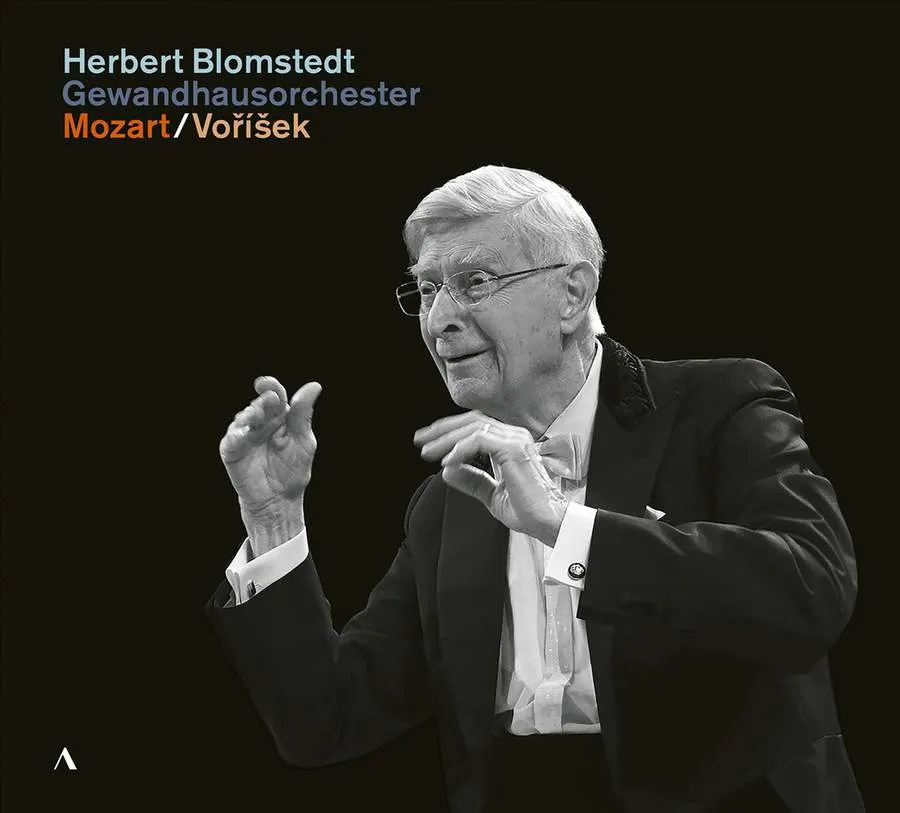
Mozart • Vořıšek Mozart: Symphony No. 38, ‘Prague’; Vořıšek: Symphony in D Gewandhausorchester Leipzig/Herbert Blomstedt Accentus ACC30574 60:16 mins
Leipzig’s Gewandhaus Orchestra was founded in the 18th century, and at 95 this year, Herbert Blomstedt is one of his profession’s more seasoned conductors. So this is a venerable performing combination in more senses than one, and its presence explains a brand of music-making in these two works that will be resisted by period-instrument fundamentalists. The orchestral sound is full and warm, with evidently large-ish string sections and rich bass sonorities – qualities in line with a particular kind of traditional Austro-German approach, namely that all music is played as if it’s by Brahms.
Then again, if you can accept the stylistic premise, in their own terms these are superbly handsome performances, with an amplitude relating to the grand manner of the Prague Symphony in particular, and with recorded sound to match. In line with the New Mozart Edition of the score, Blomstedt includes all the section repeats in the opening movement and finale – not just those of the initial exposition in each case, but also of the development and reprise, so that the symphony’s dimensions expand to almost Beethovenian length, yet with plenty of Mozartian joy and verve along the way.
Similar performing qualities grace Jan Václav Vořišek’s only symphony, written in 1821, and showing obvious fingerprints of a composer from Beethoven’s and Schubert’s generation; the symphony’s outer movements explore little beyond that territory. A much more individual voice is heard in the Andante second movement, whose expressive early Romanticism is then followed by the Scherzo’s pre-Mendelssohn turbulence (a little self-conscious, but impressive nonetheless).
Malcolm Hayes
More reviews
- Ingenious and energetic improvisation from Elliot Galvin
- Vasily Petrenko gives voice to Strauss’s tone poems
- A radiant restoration of Lully’s Isis
- A showcase of blazing Baroque energy and haunting lyricism
- Peter Donohoe brings us Tchaikovsky with poise and passion
- Bach revisited: Angela Hewitt’s triumphant return to the Partitas